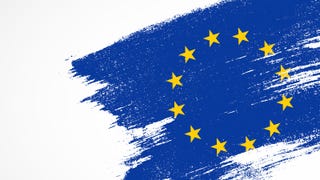EU opens fresh investigation into Apple following further non-compliance claims

EU regulators have opened a new investigation following claims Apple is not complying with EU rules.
The European Commission – which started investigating Apple’s alleged non-compliance back in March – has accused Apple of breaching its Digital Markets Act, meaning Apple could face a fine of up to 10 percent of the firm’s global annual revenue. That may not sound like much, but when you consider that Apple generates £301bn ($383bn) a year, that’s a sizeable punishment.
Any further offences could even see the fine increased to 20 percent.
Apple, Google owner Alphabet, and Facebook owner Meta are all being investigated by the EU under the Digital Market Act (DMA), key legislation designed to keep competition fair.
Both Apple and Google are being investigated over their mobile app stores, which the EU previously ordered must allow greater competition on their respective platforms.
As Tom explained for us at the time, Apple’s previously-announced solution to satisfy DMA rules has drawn fire over its fees and limits, which make launching games or apps outside of the App Store costly – something long-time legal rival Epic Games boss Tim Sweeney called “hot garbage”.
“Today is a very important day for the effective enforcement of the DMA,” Margrethe Vestager, the EU’s competition and digital chief, said in a statement earlier today (thanks, CNN), which also confirmed the regulatory body has also opened another investigation into Apple’s new contractual requirements that require app developers to pay a “core technology fee” each time their app is installed.
“Steering is key to ensure that app developers are less dependent on gatekeepers’ app stores and for consumers to be aware of better offers.”
In response, Apple said: “All developers doing business in the EU on the App Store have the opportunity to utilise the capabilities that we have introduced, including the ability to direct app users to the web to complete purchases at a very competitive rate. As we have done routinely, we will continue to listen and engage with the European Commission.”



